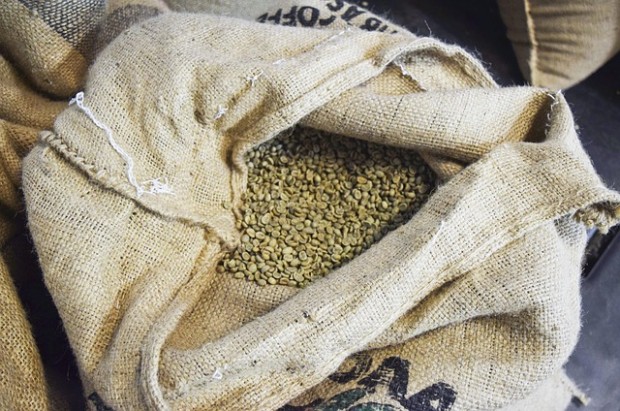Side selling refers to a situation where a producer or cooperative does not comply with a contract and chooses to sell their coffee to someone else. This can happen in markets with rising coffee prices, when the local price for the coffee exceeds the price agreed upon in a contract.
When farmers or their cooperatives decide to side sell, they risk not being able to fulfill their contracts. This in turn erodes their reputation, and their ability to receive credit and fully participate in the market. While it is possible to understand the farmer’s desire to seek increased incomes in the short-term by following the market price, the long-term cost of losing key market relationships may be far greater over time.
This type of behavior does not only occur in rising markets. There are also local market dynamics that can induce side selling. Here are some examples:
- Haiti: In Haiti, there is an enormous demand for local coffee — naturally processed — and a custom of farmers storing their coffee and only selling it when they need cash. This often leads to local prices for coffee that exceed those offered for green washed coffee by exporters and evidenced by the great decline in exports of coffee in Haiti.
- Guatemala/Honduras/El Salvador: There are a couple of different situations that arise here. In some regions, drug smuggling gangs launder their cash by buying and selling coffee. By inflating the local price for coffee, they act as intermediaries and purchase coffee from the farmers and then sell it at a loss to a cooperative/exporter/mill. The cash is now “legal” and into the banking system, yet they make it difficult for cooperatives to compete in these areas. On a similar note, on the Honduran border, there is a leakage of Honduran coffee that gets sold as El Salvadoran or Nicaraguan, due to the higher tax and retention on Honduran coffee.
And finally, for those of you familiar with the work of the great Colombian novelist Gabriel García Márquez, here is a Macondo-esque example of a situation that has created an environment that is promoting side selling: An oil-for-food trade deal between two socialist, Bolivarian revolutionaries is weakening the historical backbone of Nicaragua’s revolution — coffee cooperatives.
If Hugo Chávez were alive today, he would undoubtedly be drinking Nicaraguan coffee. A decade ago, Hugo Chávez, flush with cash, set up PetroCaribe. PetroCaribe was a way for Caribbean and Latin American countries to get subsidized petroleum loans over 25 years at very generous terms. One of the biggest beneficiaries of this largess is Daniel Ortega and the government of Nicaragua. Basically, Nicaragua pays for Venezuelan oil up front in part with coffee and beans and then defers the remainder of the payments as part of the loan. However, Chávez’s legacy is waning, and the strain that the PetroCaribe is exerting on Venezuela is changing the dynamics of these relationships (Jamaica and the Dominican Republic have bought down long term debt). Nicaragua’s debt to Venezuela is mounting and in an effort to avoid more debt, they are paying for more of the oil up front with… coffee.
In April of this last year, ALBALINISA became the largest exporter of coffee in Nicaragua, surpassing the very established companies who were #1 and #2: the local subsidiaries of the Mercon Group and Ecom Trading. They did so by offering $0.41 per lb. more than the local market, on 196,000 quintales (hundred lb. sacks), worth more than $42 million dollars.
Back in February, I spoke to a number of leading exporting cooperatives in Nicaragua. They lamented that the local price for coffee was not in sync with the global price that they could obtain and after meeting their contracts, and that if this situation continued they would not be able to continue buying more coffee in the future.
Side selling doesn’t affect the core business of these cooperatives and exporters in the short term. Contracts were filled and those engaged in direct trade will get their Nicaraguan coffee. What changes is perhaps weakened availability of Nicaragua coffee for bulk specialty in the U.S., and potentially weakened cooperative membership.
Weak cooperatives are particularly susceptible to side selling. Conditions that foster side selling are not limited to rising global coffee prices — they can be extreme local demand and local markets flush with cash that can pay a premium to the farmer , either through illicit activities or through oil for food agreements. Strengthening cooperatives is the best way to fight side selling. Cooperatives that are well organized and that can provide longer-term benefits to their members by offering technical assistance and credit, will protect themselves from members who chose to side sell for short term gain. This ensures that cooperatives can comply with contracts and buyers/roasters/consumers can ensure a secure supply of coffee.
Kraig Kraft
Kraig Kraft is the CRS Technical Advisor for Coffee and Cacao for the Latin America/Caribbean. He is Based in Managua.







Comment